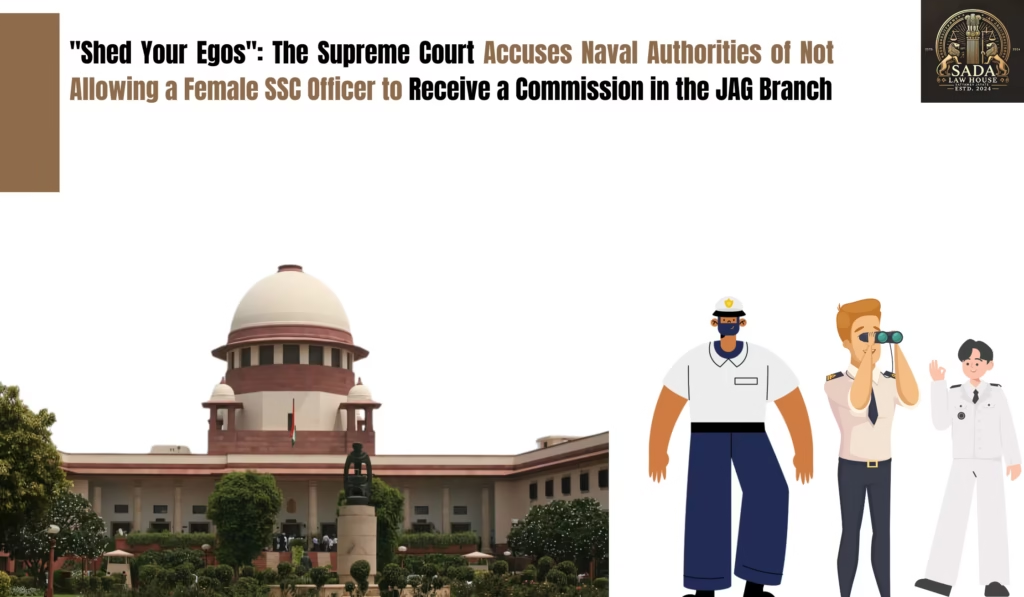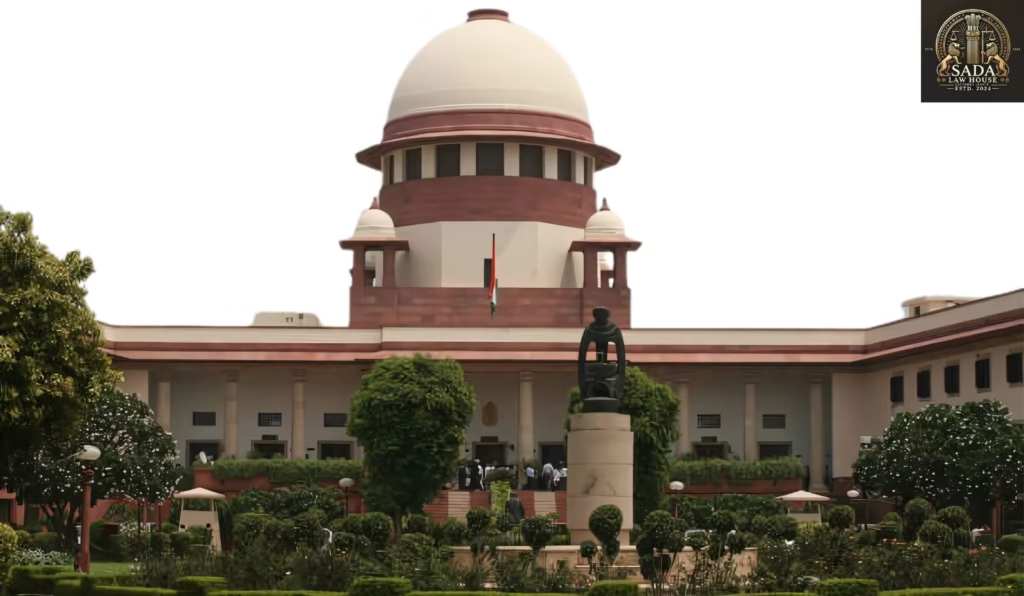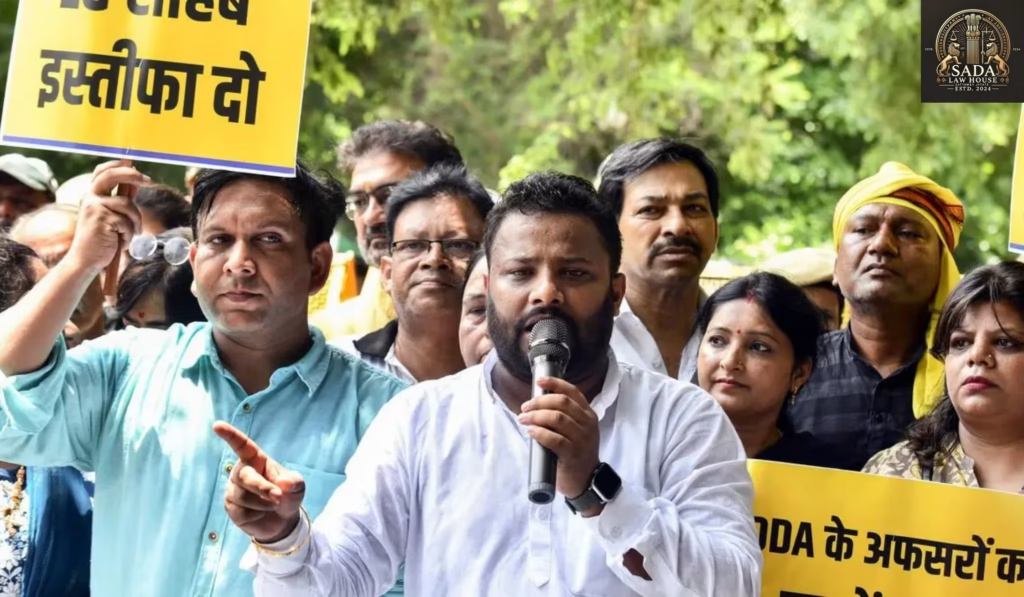Supreme Court Slams Indian Navy for Denying Permanent Commission to Female JAG Officer
Trending Today Supreme Court Halts Discharge of Woman IAF Officer Involved in Operations Sindoor and Balakot Amid PC Denial Dispute Supreme Court Quashes Gangster Act FIR Against SHUATS VC, Cites Abuse of Legal Process Supreme Court Slams Indian Navy for Denying Permanent Commission to Female JAG Officer Supreme Court Declines Sentence in POCSO Case as Victim Now Married to Convict and Opposes Punishment Supreme Court Verdict on Dr. Jaya Thakur v. Union of India: Challenge to EC Appointment Process & Section 7(1) of 2023 Act Supreme Court Verdict on Article 370: Constitutionality of Jammu & Kashmir Reorganization Upheld Delhi High Court Dismisses Section 377 Case, Cites Lack of Marital Rape Recognition Under Indian Law Bombay High Court Quashes Non-Bailable Warrant Against Actor Arjun Rampal in Tax Evasion Case Trump’s India-Pakistan Ceasefire Claim Mocked by Ex-NSA John Bolton Supreme Court Directs Center to Fully Implement Cashless Treatment Scheme for Road Accident Victims Supreme Court Slams Indian Navy for Denying Permanent Commission to Female JAG Officer PRABAHAT KUMAR BILTORIA 24 May 2025 The Supreme Court of India criticizes the Indian Navy for denying a Permanent Commission (PC) to a female SSC officer in the JAG Branch, calling for accountability and gender equality in the armed forces. “Shed Your Egos”: Supreme Court Criticizes Indian Navy Over Denial of PC to Female JAG Officer The Supreme Court of India has once again emphasized the need for gender equality in the armed forces, criticizing the Indian Navy for denying a Permanent Commission (PC) to a female officer in the Judge Advocate General (JAG) Branch. The petitioner, Seema Chaudhary, is a Short Service Commission (SSC) officer from the 2007 batch who has faced multiple legal hurdles in her pursuit of justice. Supreme Court Urges Navy to “Shed Ego” and Comply with 2024 Ruling Despite past directions, the Supreme Court noted that Seema Chaudhary had not been granted PC even after five rounds of litigation. During the hearing, Senior Advocate Dr. R Balasubramanian requested time to consult with the authorities. Meanwhile, Rekha Palli, representing the petitioner, pointed out systemic discrimination: women can only join the Navy through short commissions, unlike men who can enter via permanent commissions. No Female JAG Officers Have Been Granted Permanent Commission Palli emphasized that no female JAG officer in the Indian Navy has ever been granted a Permanent Commission. The bench, led by Justice Surya Kant and Justice N Kotiswar Singh, questioned the Navy’s rationale, especially as the petitioner was found suitable in all evaluation metrics. Negative ACRs and Gender Bias: The Court’s Rebuttal Dr. Bala argued that three Annual Confidential Reports (ACRs) had negative remarks. However, the bench countered that these ACRs—covering 2016 to 2019—had been overruled by the reviewing authority. Justice Kant noted: “Enough is enough… Bring her in for Permanent Commission. This is not about ego.” He further criticized the bias of the male officers who authored the ACRs, highlighting a broader issue of gender discrimination in the Navy. 2024 Ruling and Violation of Article 142 In 2024, a bench led by former Chief Justice Dr. DY Chandrachud had already directed the Navy to re-evaluate Chaudhary’s PC eligibility. The judgment, delivered under Article 142 of the Constitution, mandated a special Selection Board review. Justice Kant reaffirmed that the ruling was final and binding, stating the Navy must comply without letting personal biases or ego interfere. Background: Seema Chaudhary’s Service History Commissioned in 2007, Seema Chaudhary progressed to Lieutenant Commander by 2012 and received two extensions during her service. In 2020, she was informed of her termination by August 2021. The case has roots in the Union of India v. Lieutenant Commander Annie Nagaraja judgment from 2020. That ruling stated that SSC officers in legal, education, and logistics branches should be considered for PC. Despite being included in that batch, Chaudhary was initially overlooked due to a 2008 policy letter that was later quashed. Claim of Workplace Harassment and Retaliation In her latest appeal, Chaudhary alleged that she was denied PC due to retaliation after filing a workplace harassment complaint against a male officer. A Board of Inquiry validated her claim, yet she was reassigned the next day—while the accused officer remained in place. Conclusion: A Call for Institutional Accountability This case is not just about one officer but reflects the broader struggle of women in the Indian armed forces. The Supreme Court’s stern remarks highlight the need for transparent, merit-based decision-making and an end to gender discrimination. The Indian Navy now stands at a critical juncture—will it uphold the constitutional principles of equality and justice, or allow systemic bias to persist? Leave a Reply Cancel Reply Logged in as Sada Law. Edit your profile. Log out? Required fields are marked * Message* Live Cases Supreme Court Halts Discharge of Woman IAF Officer Involved in Operations Sindoor and Balakot Amid PC Denial Dispute Supreme Court Halts Discharge of Woman IAF Officer Involved in Operations Sindoor and Balakot Amid PC Denial Dispute Sada Law • May 24, 2025 • Live cases • No Comments Supreme Court Quashes Gangster Act FIR Against SHUATS VC, Cites Abuse of Legal Process Supreme Court Quashes Gangster Act FIR Against SHUATS VC, Cites Abuse of Legal Process Sada Law • May 24, 2025 • Live cases • No Comments Supreme Court Slams Indian Navy for Denying Permanent Commission to Female JAG Officer Supreme Court Slams Indian Navy for Denying Permanent Commission to Female JAG Officer Sada Law • May 24, 2025 • Live cases • No Comments 1 2 3 … 5 Next »
Supreme Court Slams Indian Navy for Denying Permanent Commission to Female JAG Officer Read More »



